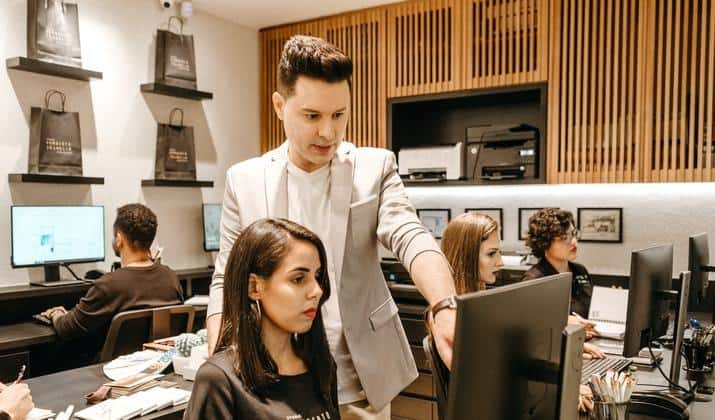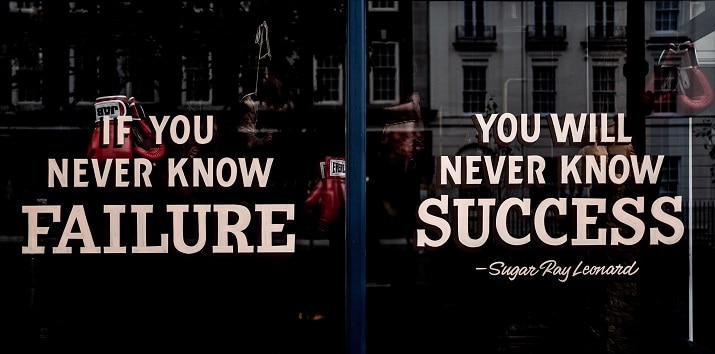When you don’t ask any questions at the end of the interview, it makes the interviewer think that you’re unprepared or not very interested in the job.
You also miss out on the opportunity to assess the organization and determine whether you would be happy being employed by them.
However, we recognize that coming up with the right questions to ask in the moment can be a bit overwhelming, which is why you need to prepare a few thoughtful questions ahead of time.
We’ve put together some thought-provoking questions you can ask your interviewer to give you a clearer picture of the company and position you’re applying to, and establish yourself as a memorable candidate.
-
Best Questions To Ask The Interviewer
- 1. Have I sufficiently answered all your questions?
- 2. Can you think of an instance where the company’s culture helped you during a difficult time?
- 3. How will performance or success in this role be evaluated?
- 4. Where do you see the company heading in the next five years?
- 5. What about this company motivated you to leave your old job?
- 6. What is the typical career path for employees in this role?
- 7. What’s the onboarding process for this job?
- 8. Can you tell me more about the person I would be reporting to?
- 9. What would I need to do to impress you in the first three to six months?
- 10. Does the company offer professional development opportunities?
- 11. What would a typical day in this position look like?
- 12. What qualities does the company look for in employees?
- 13. How do you deal with conflict within your organization?
- 14. In terms of living up to core values, how would you rate the company?
- 15. What do you love about your job?
- 16. Is this a new position? If not, why did it become available?
- 17. What are the biggest problems you’re hoping to solve in the next one year?
- 18. What do you think would be the most challenging parts of the job?
- 19. Is there anything else I can offer to help you with your decision?
- 20. Is there anything we haven’t covered that is important to know about the company and working here?
- 21. What is your employee turnover rate and how are you working to reduce it?
- 22. In your opinion, what is the best thing about working here?
- 23. What are the most important qualities one would need to excel in this role?
- 24. How does your company support its staff?
- 25. Which projects will need to be addressed immediately by whomever you hire?
- 26. What other departments do this role/team work with often?
- 27. If you left the company, what would you miss the most?
- 28. Do you expect the primary responsibilities of this position to change within the next year?
- 29. How does the company deal with failure on the individual, team, and organizational level?
- 30. What change in the industry are you the most excited about?
- 31. What are the biggest opportunities the company or team is facing right now?
- 32. How does the company reward performance?
- 33. What steps does the company take to build an inclusive team?
- 34. How does the company foster innovation?
- 35. What kind of company events do employees engage in?
- 36. How does your company measure up to your direct competitors, good and bad?
- 37. What is your best memory of working here?
- 38. How do employees communicate with each other and the executive team?
- 39. What are the strengths and weaknesses of the company’s current leadership?
- 40. Who do you see as your biggest competitor and why?
- 41. How often does performance get reviewed?
- 42. What’s an example of a skill not on the resume or job description that you’d love to learn that I have?
- 43. What was your career plan before joining this company and how has that changed since?
- 44. How do I measure up to other candidates you’ve interviewed for this position?
- 45. What have previous employees done to succeed in this role?
- 46. What are you trying to work on for employees this year?
- 47. What kind of budget would I be working with?
- 48. How long have you been with the company?
- 49. Do you have a mentorship system in place?
- 50. Would I be able to represent the organization at industry events?
- 51. How often do employees make themselves available outside of regular working hours?
- 52. How competitive are your employees?
- 53. What about the company’s future makes you most excited?
- 54. What kind of hours would be expected of me to perform at maximum capacity in this role?
- 55. What training programs are available to employees?
- 56. What is your telecommuting policy?
- 57. How do you help employees maintain work-life balance?
- 58. What is your favorite office tradition?
- 59. What kind of technology and processes do employees use for collaboration?
- 60. Why do most employees leave the company?
- 61. How long have past employees kept this job on average?
- 62. What groups do you think are underrepresented amongst your staff and how are you trying to remedy this?
- 63. Are there questions I should have asked but didn’t that could help me better understand the company or role better?
- 64. What inclusion, diversity, and cultural training do supervisors undergo?
- 65. How much travelling is expected for this position?
- 66. How transparent is the organization about revenue, operations, and future plans?
- 67. Are employees expected or allowed to work overtime?
- 68. Has the company ever had to deal with a situation where one employee wasn’t accepting of another’s diversity?
- 69. Is relocation a possibility?
- 70. How does leadership deliver negative feedback to employees?
- 71. Can you share data on the organization’s diversity?
- 72. What do you wish the company to be known for amongst past, present, and future employees?
- 73. What’s your least favorite thing about working here?
- 74. Is there anything in my background that makes you question my fitness for the role?
- 75. What’s your timeline for making a decision about this role?
- Conclusion
Best Questions To Ask The Interviewer
1. Have I sufficiently answered all your questions?
This is a perfect question to open with because it allows the interviewer to gain clarity on any previously stated point that’s unclear to them. It also enables you to tell how well you’ve performed and take another go at any chances you might have missed.
2. Can you think of an instance where the company’s culture helped you during a difficult time?
Instead of simply asking them what the company culture is like and getting generic answers, you can make the interview delve into specific instances that can give you a better insight into the culture of the workplace.
3. How will performance or success in this role be evaluated?
This will tell you whether they have a clear vision of what they want you to accomplish and if those goals are realistic. It will help you understand the key performance indicators for the role and better prepare you to take it on.
4. Where do you see the company heading in the next five years?
Asking this question signifies that you’re interested in sticking with the organization long-term and contributing positively to its growth. It can also give you insight into the company’s growth ambitions, upcoming projects, and future job security.
5. What about this company motivated you to leave your old job?
Before you make the decision to join an organization, you want to learn about the unique advantages that they offer, so knowing what inspired current employees to jump aboard will be very informative.
Source: Unsplash
6. What is the typical career path for employees in this role?
You don’t want to get stuck in a dead-end job or in a company that offers no internal opportunities for growth and advancement. Asking this question will help you figure out where and how far this position can take you within the organization.
Also Read: Best Self Evaluation Examples For Performance Reviews
7. What’s the onboarding process for this job?
It’s good to know whether you’re joining a company that has established structures and processes or one that just throws you in the deep end of the pool and expects you to figure it all out on your own.
8. Can you tell me more about the person I would be reporting to?
This can help you better understand what your prospective supervisor is like, what their leadership style is, the qualities they value in members of their team, and how the team dynamic works.
9. What would I need to do to impress you in the first three to six months?
Not only does this question show that you’re interested in hitting the ground running and making a positive impact, it can also tell you what performance markers they expect you to hit in the early months of your employment.
10. Does the company offer professional development opportunities?
If you plan to grow and get better at your job, you need to keep learning, so find out how committed that company is to helping their employees expand their professional skill set.
Source: Unsplash
11. What would a typical day in this position look like?
This shows enthusiasm about the role, while helping you gather more information about the daily responsibilities and expectations of the job so you can decide if it’s right for you.
Also Read: Short & Sweet Follow-up Email Samples After Interview
12. What qualities does the company look for in employees?
How the interviewer answers this will help you determine whether your values align with the company’s. You can even use the insights to position yourself as the ideal candidate in subsequent interviews.
13. How do you deal with conflict within your organization?
There will always be conflicts, but how a company deals with them can be the difference between success and employee happiness or job dissatisfaction.
14. In terms of living up to core values, how would you rate the company?
While a company might not be perfect, it’s good to know that they’re aware of areas where they fall short and are actively working to remedy it.
15. What do you love about your job?
Asking the interviewer about their personal work experience can be a good way to learn more about the culture and level of job fulfilment the company offers.
Check Out: What To Include In A Cover Letter For A Job?
Source: Unsplash
16. Is this a new position? If not, why did it become available?
If the position is new, it shows the company is growing. If not, it’s useful to know the reason why your predecessor left the role.
17. What are the biggest problems you’re hoping to solve in the next one year?
Before you jump ship, it’s important to know what major challenges a company is looking to tackle in the near future and how you can help them create lasting solutions.
18. What do you think would be the most challenging parts of the job?
Knowing what difficulties might accompany the role will give you a clearer picture of the work you have ahead of you, so you can be better prepared to deal with them.
19. Is there anything else I can offer to help you with your decision?
Asking this is a classy way to show that you’re eager and enthusiastic about joining the company.
20. Is there anything we haven’t covered that is important to know about the company and working here?
This question is a catchall that allows the interview to offer up more information about the company and answers to questions you might never have thought to ask.
Source: Pexels
21. What is your employee turnover rate and how are you working to reduce it?
It’s wise to know whether you’ll be joining a company where people come and go every few months or one where they stay for many years because they’re happy working there.
Explore: How Long A Cover Letter Should Be?
22. In your opinion, what is the best thing about working here?
Maybe the staff members are some of the most amazing people to walk the earth or you’ll get to learn from the best or enjoy work-life balance like never before.
23. What are the most important qualities one would need to excel in this role?
The answer to this question can reveal vital information that’s not included in the job description that could help you perform better if hired.
24. How does your company support its staff?
This will help you learn how the company treats and cares for employees to ensure they’re well-adjusted and able to tackle tough times as well as the daily demands of the job with ease.
25. Which projects will need to be addressed immediately by whomever you hire?
What kind of tasks will you be expected to undertake when you resume? Will you be joining a smoothly functioning team spending your time putting out fires from an existing crisis?
Source: Unsplash
26. What other departments do this role/team work with often?
If the organization is mid or large-sized, you’re probably going to be collaborating directly with multiple departments so it helps to know which ones you’ll have to work with ahead of time.
27. If you left the company, what would you miss the most?
Asking this question can help humanize the interview process, engage your interviewer, and provide insights into what makes the company a great place to work.
28. Do you expect the primary responsibilities of this position to change within the next year?
It’s great to know if and how your position may evolve over the next few months so you can take it into consideration when making a decision.
Also Read: How To Write An Email For A Job?
29. How does the company deal with failure on the individual, team, and organizational level?
There will be times when employees fall short of expectations, and how the company navigates this situation matters a great deal.
30. What change in the industry are you the most excited about?
Let the interviewer tell you what innovations or trends in the company and industry that they’re excited to explore and then provide your own answer to the question.
Source: Unsplash
31. What are the biggest opportunities the company or team is facing right now?
Your interviewer will interpret this question as you being driven and passionate about helping the organization grow and achieve its goals.
32. How does the company reward performance?
Do employees who do great work receive bonuses, promotions, awards and accolades? It’s good to know what kind of value a company places on recognizing excellent performance.
33. What steps does the company take to build an inclusive team?
It’s crucial to know how committed the organization is to promoting inclusivity and making every employee feel valued and respected.
34. How does the company foster innovation?
Any company worth joining should be committed to fostering new ideas, adopting new technologies, embracing fresh challenges, and ensuring that employees don’t get stuck in a rut.
35. What kind of company events do employees engage in?
It’s important to know how the organization fosters a sense of community and friendliness amongst its staff and the kind of initiatives they use to accomplish this.
Explore: What Does WFH Mean? A Guide
Source: Unsplash
36. How does your company measure up to your direct competitors, good and bad?
You want to know how the company sees itself, how it plans to dominate the competition, and the unique advantages it has over its counterparts.
37. What is your best memory of working here?
This question can help you engage and build rapport with your interviewer because it prompts them to draw their answer from personal experiences.
38. How do employees communicate with each other and the executive team?
Do they hold team meetings and how often? How many one-on-one meetings can you expect to have with your manager? Is the executive team accessible or do they lead from behind the curtain?
39. What are the strengths and weaknesses of the company’s current leadership?
How the leadership acts will ultimately affect you in a positive or negative way so it’s good sense to find out what you will be putting up with before you make the leap.
40. Who do you see as your biggest competitor and why?
While you should have already done your research about the company’s competition, asking this can furnish you with more information and wisdom on the subject.
Source: Unsplash
41. How often does performance get reviewed?
This question tells your interviewer that you’re interested in advancing your career in an environment that is serious about evaluating performance and providing helpful feedback.
42. What’s an example of a skill not on the resume or job description that you’d love to learn that I have?
There may be skills that the interviewer is secretly hoping the ideal candidate possesses, so asking this question can help bring those wishes to the light.
Explore: How Many Hours Is Part-time A Week?
43. What was your career plan before joining this company and how has that changed since?
This is a great way to get the interviewer talking about their own career path and aspirations and how that has evolved for the better or worse since they joined the company.
44. How do I measure up to other candidates you’ve interviewed for this position?
Only sneak in this question when you feel you’ve built a strong connection with your interviewer or you risk backing them into an uncomfortable corner.
45. What have previous employees done to succeed in this role?
The goal of this question is to prompt the interviewer to disclose how the organization measures performance for the role and what it deems success.
Source: Unsplash
46. What are you trying to work on for employees this year?
Asking this question can make you a more memorable candidate because it acknowledges that every company, no matter how established, is a work-in-progress.
47. What kind of budget would I be working with?
If your role is such that you’ll need certain sums of money to get the job done, knowing the budget you’ll be working with can help you plan better.
48. How long have you been with the company?
If your interviewer has been working with the company for years, that can signify that they’re happy with the company and the work they do there.
49. Do you have a mentorship system in place?
If you’re enthusiastic about climbing up the career ladder, working in a company where you can learn from people who are where you want to be is very important.
50. Would I be able to represent the organization at industry events?
Attending industry conferences is a great opportunity to network, build connections, and boost your professional capabilities, so find out if it’s on the cards.
Source: Pexels
51. How often do employees make themselves available outside of regular working hours?
Is this a company that expects all work to be done within the set working hours or will you be called upon frequently to work through the night, at odd hours, or on weekends?
52. How competitive are your employees?
Healthy competition is good and even necessary for growth and improvement, but you don’t want to end up in an environment where toxic competition is rampant or even mandated.
53. What about the company’s future makes you most excited?
This question will help you get a sense of where the company is headed and the scope of the ambitions it’s working towards.
54. What kind of hours would be expected of me to perform at maximum capacity in this role?
Does the company believe you’ll be able to get your work done well within the prescribed working hours or is the workload so great that you’ll need to put in extra hours to catch up?
55. What training programs are available to employees?
It helps to know whether a company has internally funded training programs that you can take advantage of. If yes, it shows that they invest in their employees.
Source: Unsplash
56. What is your telecommuting policy?
This is a good way to find out whether the company supports working remotely part-time or fully or if you will be required to show up to the office every day.
Also Read: Examples Of Strengths & Weaknesses For A Job Interview
57. How do you help employees maintain work-life balance?
Are employees encouraged to take vacations, sick leaves, or mental health days? Are supervisors discouraged from sending emails and work-related requests outside of normal working hours?
58. What is your favorite office tradition?
Asking this will reveal what fun activities the office likes to engage in from time to time to take the stress off working and promote team bonding.
59. What kind of technology and processes do employees use for collaboration?
It’s possible that you may not be familiar with the tools or tech stack an organization uses day-to-day and it never hurts to find out.
60. Why do most employees leave the company?
Are employees leaving to start their own companies, take up a better position in another company, or because they keep getting fired or resigning because of toxic policies?
Source: Pexels
61. How long have past employees kept this job on average?
If everyone before you only lasted a few months in the position, that might indicate that the company isn’t the place to work.
62. What groups do you think are underrepresented amongst your staff and how are you trying to remedy this?
This is a polite and respectful way to inquire about a company’s diversity and the steps they’re taking to fix obvious gaps.
Check Out: Personal Mission Statement Examples
63. Are there questions I should have asked but didn’t that could help me better understand the company or role better?
It’s possible that you’ve missed something important that the interviewer was hoping you would mention, so why not give them the opportunity to address it?
64. What inclusion, diversity, and cultural training do supervisors undergo?
This question shows that you believe diversity and inclusivity are principles companies should take seriously and train their employees to abide by.
65. How much travelling is expected for this position?
It helps to know how often you will be expected to travel and where you will likely be headed so you can know whether it suits you before making the jump.
Source: Pexels
66. How transparent is the organization about revenue, operations, and future plans?
Some companies enjoy keeping employees in the dark about a lot of things that go on to allow them to effectively exploit workers, so find out how much the organization values transparency.
67. Are employees expected or allowed to work overtime?
Depending on the industry or role you’re applying for, overtime might come into play. It’s good to know whether this is mandated, acceptable, and if you will be compensated for it.
68. Has the company ever had to deal with a situation where one employee wasn’t accepting of another’s diversity?
How your interviewer answers this question will give you an idea of how the organization deals with diversity issues.
Explore: Best Executive Summary Examples
69. Is relocation a possibility?
Before you accept a job offer, it’s good to know whether you’ll need to relocate or if the company supports relocation for those who want to move.
70. How does leadership deliver negative feedback to employees?
You want to know if managers scream, hurl insults at employees, or even go as far as hitting things or threatening physical harm whenever an employee falls short of expectations.
Source: Pexels
71. Can you share data on the organization’s diversity?
This is a non-offensive way to ask the interviewer about how diverse the company is, so you know what you’re getting into.
72. What do you wish the company to be known for amongst past, present, and future employees?
How the interviewer answers this question will tell you what they consider important and the kind of legacy they are working to build, so you decide if it aligns with your values.
73. What’s your least favorite thing about working here?
This question will get the interviewer to reflect on their personal experiences and highlight the not-so-glamorous aspects of their job and the company.
Also Read: Top Weaknesses List & Examples
74. Is there anything in my background that makes you question my fitness for the role?
Asking this will give you a chance to address any potential concerns, reiterate why you’re uniquely suited for the role, and gauge how they feel about you as a candidate.
Source: Pexels
75. What’s your timeline for making a decision about this role?
This signifies that you’re excited to move forward with the interview process and it will help you figure out how long to wait before following up or moving on.
Explore: Best Elevator Pitch Examples
Conclusion
Never forget that interviews are a two-way street, and you’re there to analyze the company and whether they would be a good fit for you just like they are evaluating whether you’re the best candidate for the job.
Cassie Riley has a passion for all things marketing and social media. She is a wife, mother, and entrepreneur. In her spare time, she enjoys traveling, language, music, writing, and unicorns. Cassie is a lifetime learner, and loves to spend time attending classes, webinars, and summits.














